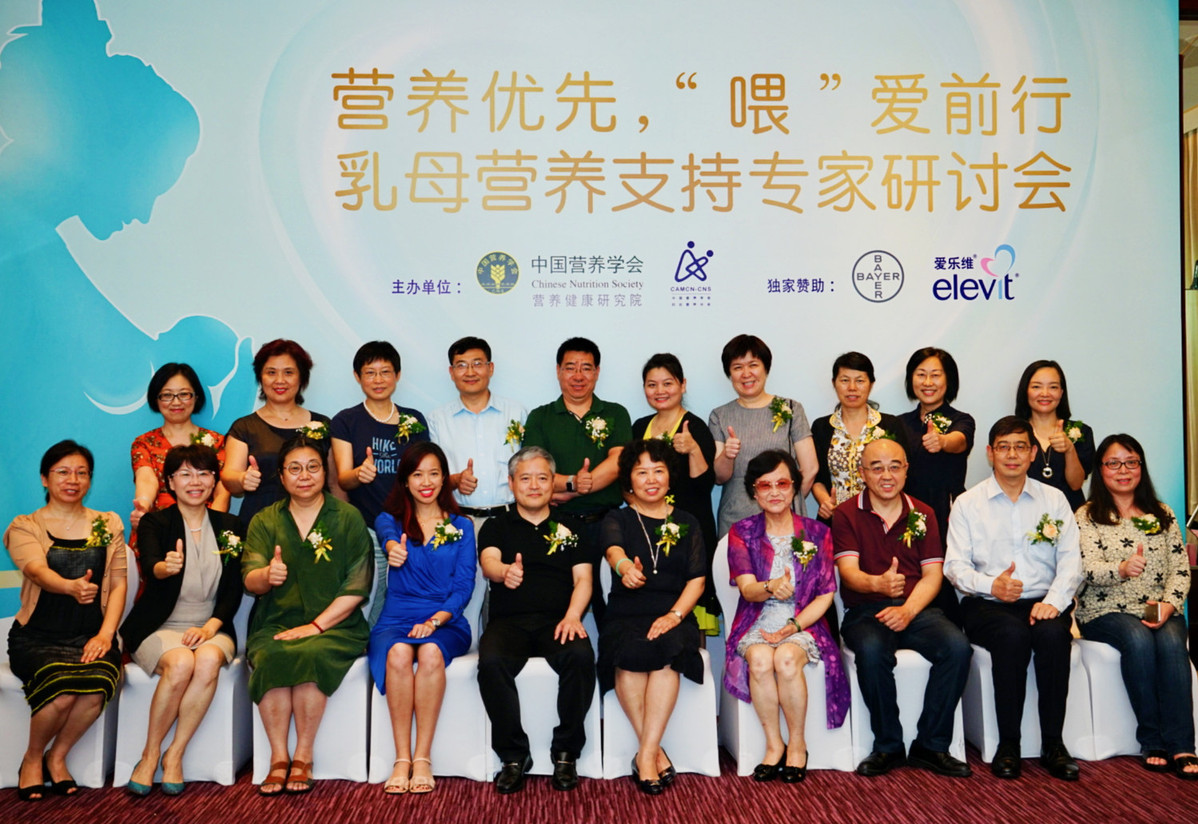Breastfeeding urged for healthier moms and babies


Chinese nutritionists and maternal and child care experts called to further promote only breastfeeding for infants up to 6 months at a forum to mark the 27th World Breastfeeding Week campaign on Friday.
The campaign was initiated by the Chinese Nutrition Society and sponsored by German-based life science company Bayer. It gathered more than 20 nutritionists and maternal experts at a forum in Beijing to discuss the latest developments in the science and provide guides to breastfeeding mothers.
A brochure was launched that provides a breastfeeding guide for mothers. A charity group formed by elevit, Bayer's brand for maternal nutrition, consisting of maternal and nutrition experts, notes that breast milk is the best food for infants.
Breastfeeding is good for mothers as it can reduce instances of breast, uterine and ovarian cancer. Moreover, breastfeeding mothers lose weight - 0.44 of a kilogram on average per month after giving birth.
There are 176 known nutrient components in human breast milk, while only 37 in formula. The cases of malnutrition of babies fed by formula are 10 percent higher than those of fed by their mothers.
Infants who are only fed with breast milk in their first six months tend to be more healthy and smart, and suffer from fewer diseases.
Wang Zhixu, chief of the maternal and childcare commission of the Chinese Nutrition Society, explained some misunderstandings regarding breastfeeding.
First, some breastfeeding mothers eat too much as the they think ingesting more food will help produce milk. Second, some mothers give up breastfeeding because they think they have no milk or lack milk after giving birth. Third, the nutrition content has nothing to do with the color of the mother's milk.
Wang suggested breastfeeding mothers should eat a balanced diet instead of following too much the "Chinese tradition", such as eating pig's feet stock or chicken stock. New mothers should learn how to breastfeed scientifically and stick to breastfeeding, even though they have less milk right after giving birth.
China's pure breastfeeding rate for infants up to 6 months old declined from 28 percent in 2008 to 21 percent in 2013. A survey of 1,000 mothers of infants under 6 months old in Shenzhen shows that 66 percent of the breastfeeding mothers who also relied on other forms of feeding their babies said they didn’t have enough milk or thought human milk is not enough. Another 17 percent said work affected their ability to breastfeed.
Yang Yuexin, director-general of the Chinese Nutrition Society, called for more favorable labor policies on maternity leave and more care for breastfeeding working women. More standard nursing rooms in work places and in public are badly needed and more scientific and proper breast milking and transportation methods need to be promoted, Yang said.
- China willing to advance just and equitable global anti-corruption system
- Chongqing hosts Silver Age fashion model competition
- Hengshan Mountain glistens with iconic winter rime scenery
- Ningbo hospital staff disciplined following pediatric surgery death
- Mainland warns Taiwan leader against provoking conflict
- Former senior official of Shenzhen under investigation





































